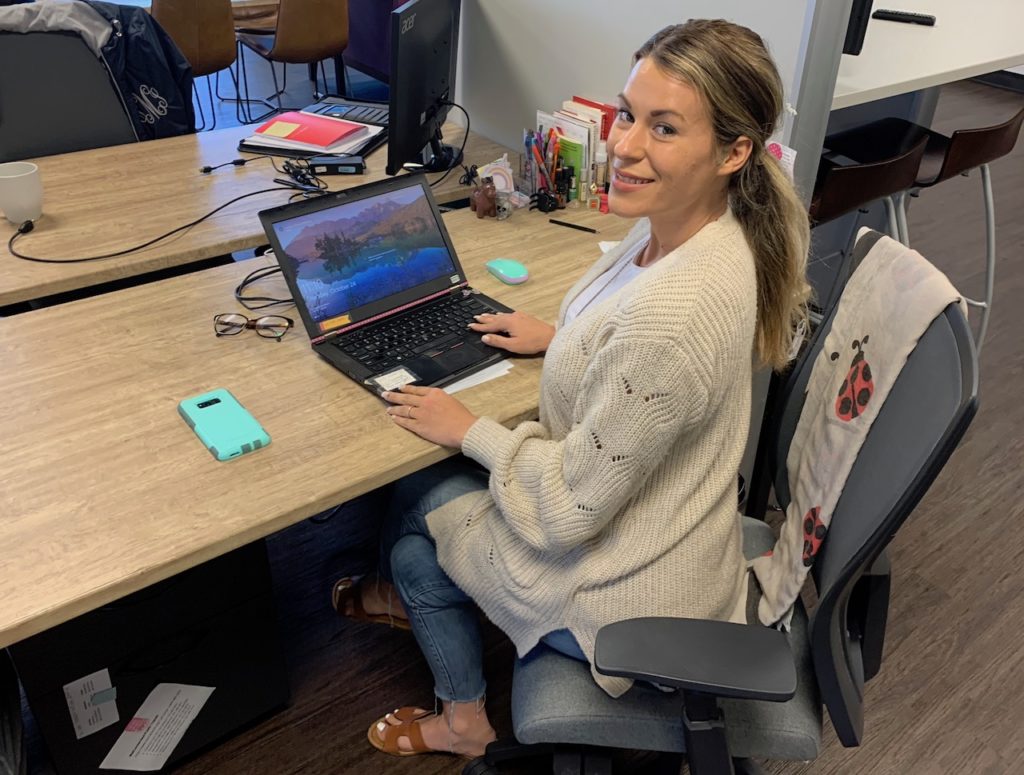
The image of shaking babies in hospital nurseries, withdrawing from opioids used by their mother, is referenced in many of the lawsuits against drug companies, aimed at punishing them for contributing to the opioid crisis. But there are growing concerns that those same newborns name-dropped in litigation will be left out of the settlements being negotiated right now.
Neonatal abstinence syndrome, or NAS, was only recently a condition doctors even looked for. Then numbers quadrupled over a decade, with Tennessee leading the nation in some years. Symptoms include tremors, seizures and even breathing trouble in the first days of life. Treating newborns in the hospital has cost Medicaid billions of dollars nationwide and nearly $500 million over five years in Tennessee.
“The whole experience is just traumatizing, really,” says Robbie Nicholson of Eagleville, Tennessee.
Nicholson had to comfort her second child withdrawing from drugs she was taking.
Her ordeal goes back to her first pregnancy. Afterward, she was prescribed a pile of Percocets by her doctor. That was the norm.
“Back then, it was like I was on them for a full month. And then he was like, ‘ok, you’re done.’ And I was like, oh my god, I’ve got a newborn, first time mom, no energy, no sleep, like that was getting me through,” she says. “It just built and built and built off that.”
After developing a full-blown addiction to painkillers, she eventually found her way into recovery, taking medication to keep her opioid cravings at bay. And then, another pregnancy.
The trouble is, medication-assisted drug treatment — which involves taking a special kind of opioid called buprenorphine — can still result in withdrawals for the newborn. MAT is now the leading cause of NAS in Tennessee. Treatment varies from hospital to hospital, but doctors have become better at diagnosing NAS and weaning newborns safely, increasingly without separating them from their mother in the neonatal intensive care unit. But not much is known about the long-term effects.
“I wanted her to be perfect, and she is absolutely perfect,” Nicholson says. “But in the back of my mind, it’s always going to be there.”
There are thousands of children like Nicholson’s daughter entering the education system. And neonatologist Stephen Patrick says schools and early childhood programs are on the front lines now.
“You hear teachers talking about infants with a development delay,” he says. “I just got an email this morning from somebody.”
Studies haven’t proven a direct link between NAS and behavior problems in kids. But Patrick, who leads the Center for Child Health Policy at Vanderbilt University, says that’s where more research is headed.
As states, cities, counties and even hospitals are going after drug companies in court, Patrick fears the kids will be left out. He cites public discussion of pending settlements and the early deals out of Oklahoma, which make little or no mention of children.
“It’s somewhere where we need to be in the mix right now, in schools, understanding how we can support teachers, how we can support students as they try to learn, even as we work out was there cause and effect of opioid use and developmental delays or issues in school,” he says.
But it’s a nuanced problem with no consensus on where money is most needed, even among those who’ve been working on the problem for years.
Justin Lanning started Nashville-based 180 Health Partners, which works with mothers at risk of delivering a drug dependent baby. Most are on Medicaid, which pays for most of the NAS births in the U.S.
“We have a few departments in our country that can operate at an epidemic scale, and I think that’s where we have to focus our funds,” he says.
Lanning sees a need to extend government insurance for new mothers, since in some states like Tennessee, which never expanded Medicaid, they can be dropped after just two months. That often derails the mother’s own drug treatment funded by Medicaid, he says.
“This consistency of care is so key to their recovery, to their productivity, to their thriving,” Lanning says.
Lanning’s startup hires mothers who’ve been there to act as mentors. Robbie Nicholson is one of them.
Working directly with pregnant women struggling with addiction, Nicholson says their biggest need is a stable place to live and reliable transportation.
“I just feel kind of hopeless,” she says. “I don’t know what to tell these women.”
There are many needs, Nicholson says, but no simple fix. Those who work with mothers in recovery fear any opioid settlement money may be spread so thin that it doesn’t benefit their children — the next generation of the crisis.

